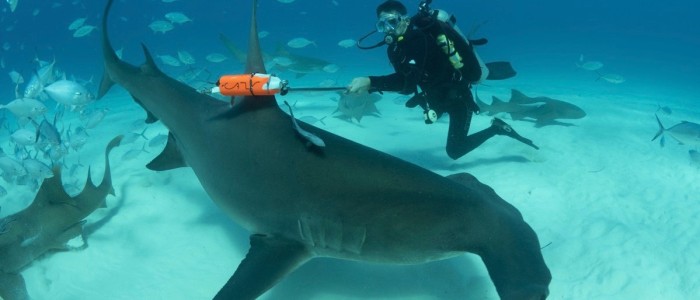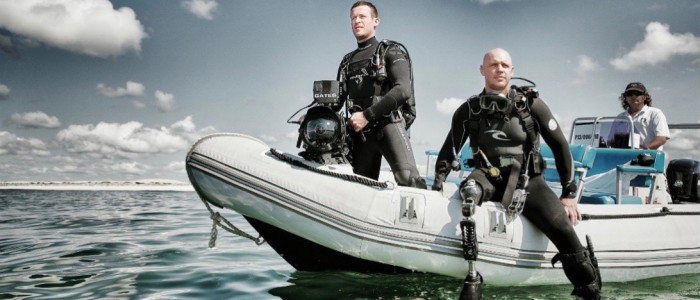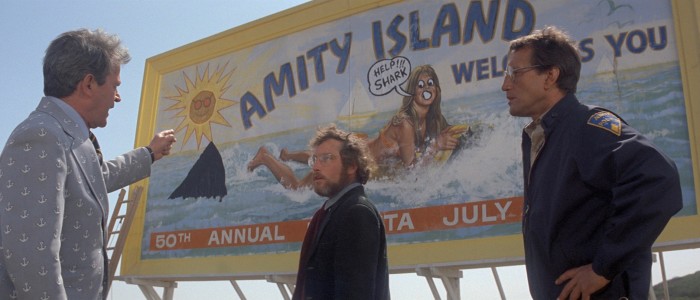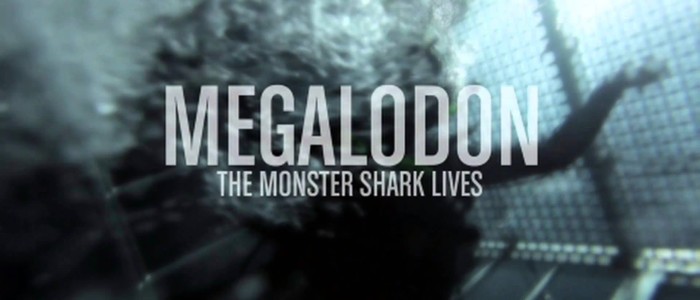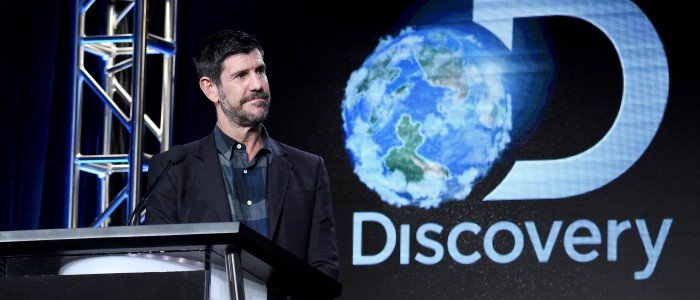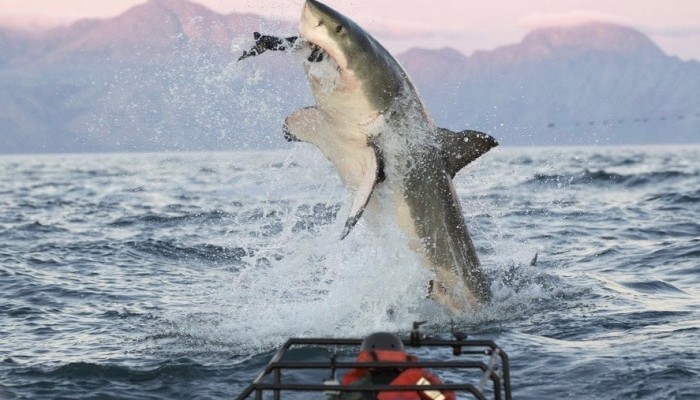The Rise And Fall And Rise Again Of Shark Week (And Thoughts On The 2017 Edition)
When Jaws premiered in 1975, it created panic. Even for new viewers, seeing those soulless black eyes and hearing that music it changes you. Slasher movies made you weary of what could be hiding behind the shower curtain – Jaws made you afraid of any body of water. In the movies, a Great White Shark was as terrifying as any horror movie ghoul. Except this killer was real.
Sharks have always been a subject of fascination, but Jaws put them in the spotlight...for all the wrong reasons. Peter Benchley, the author of the original Jaws novel, is a lifelong shark advocate and expressed regret for ever writing the book that made him a millionaire. The fear caused by his work led to the hunting of sharks under the guise of safety for beach-goers.
A necessary part of the ecosystem, sharks are quite possibly one of the most misunderstood creatures in the world. But how do you counteract the fearsome persona perpetuated by one of the most popular films of all time? You grab that popularity and use it to feed one of the most educational and popular programs of all time, focusing on revamping the image of sharks and promoting their conservation above all else. Obviously.
The Discovery Channel's Shark Week capitalizes on people's morbid fascination with these mysterious creatures, luring people in with stories of shark attacks and up-close footage of real people in the water next to these beasts, and then blinding them with science! And it worked as well as a seal decoy off the coast of South Africa!
Until it didn't. And then it did again. This is the rise and fall of Shark Week.
Knowledge is Power: A Personal Anecdote
As a kid in the '90s, Shark Week wasn't that much older than I was. We grew up together. Having been exposed to Jaws at a very early age, seeing real people swim next to these living, breathing dinosaurs was about as cool a thing as a child could possibly imagine. Shark Week took me from being afraid of my pool to adding cage diving to my bucket list.
While bored at a family function, I did what any kid would do when they aren't getting attention: I annoyed my mom with super cool shark facts that couldn't possibly wait. However, this time, it was different. Instead of the more mainstream sharks, I told her about a lesser known one. Small in size, the cookie-cutter shark has a round mouth that latches onto its victims and sucks out the flesh, almost to the bone, in a perfect circle. How metal is that. My mom looked at me with genuine interest. So, beaming with pride, I took out the shark book I had with me and showed her a picture.
It was then that my mom revealed an old family mystery. When my mawmaw (read: grandma) was a teenager, she came out of the ocean in great pain, bleeding from her thigh. Something in the water had taken out a piece of her leg, in a perfect circle, deep into her thigh. No one ever knew what caused it, and the circle scar remained for the rest of her life.
That's right, with the knowledge I gained from Shark Week, I solved a decades-old family mystery.
But that's small potatoes. Even more important than my little family mystery was another child, 9-year-old Sean Lesnik, who was so inspired by Shark Week and it's emphasis on declining shark populations that he wrote a letter to his representative, David Nangle, about putting an end to shark finning (a particularly heinous act). Nangle actually moved the bill filed in Sean's behalf and that bill became law in the state of Massachusetts.
“Live Every Week Like It is Shark Week”
Much like a scripted series, Shark Week developed a tone and personality over the years that fans could sink their teeth into. Perfectly infusing macabre fascination, 'wow' moments, and revolutionary underwater cinematography, Shark Week swam full speed into everyones homes and hearts. When I was a kid, none of my friends watched Shark Week. Then the social media age arrived, science and 'nerdiness' became trendy, and by the time I was in high school and college, there were Shark Week parties, complete with drinking games and decorations. Shark Week made puns and kitschy programming titles an art form, a new vocabulary was born, and it was deemed "a bad week to be a seal." With references on shows like 30 Rock and celebrities tweeting out their love for the program, Shark Week hit its stride, all while exploring science and passing along the message of conservation.
With recurring scientists and studies, Shark Week had its own cliffhangers, something that non-fiction programming can rarely boast. Programs like Air Jaws took Shark Week to the next level. Who knew that great white sharks could fly out of the water? It took viewers' almost sadistic fascination with natural born killers and turned into legitimate interest, curiosity, and wonder.
They added hosts to the show and played heavily into the tongue-in-cheek nature that is so prominent in the program's style. Advertising rose, viewership rose, and the money rolled in, meaning the programs just kept getting bigger and cleaner. Tuning in every year was worth it just to see the advancements in the camera equipment alone. A program that began with shows about testing new kinds of shark cages was now able to film a shark's vertical leap from all angles, above and below the water. Watching the real and pure excitement and enthusiasm from the researchers as years of hypotheses and tests and work came to fruition made scripted acting irrelevant. Not to mention, there was always one or two close encounters that fed the need for drama. Shark Week was a titan.
The Fall
With the growing pop culture status, Discovery got hungry.
Although Shark Week always played a little bit into the fear of sharks garnered by Jaws, it became consumed by it in later years. In what was a massive backward step for a series that was supposed to be rewriting the negative portrayals of these misunderstood creatures, Shark Week started spending a lot more time on shows about shark attacks, on shows about what areas of the world are the 'most dangerous,' programs implying that sharks are reclaiming their territory, and programs like Top Five Eaten Alive. Shark Week went from playing into the fear to educate, to creating fear and sensationalism.
Slowly, the message of shark conservation started to be buried as Shark Week started turning more into the exact thing that it was trying to combat. It can be argued that some sensationalism and commercialization is a necessary evil to hook more people who wouldn't typically watch seven days of non-fiction programming. But in reality, the sudden turn reeked of greed. Still, people kept tuning in, and although more subtle now, the message of shark conservation was little hanging on, albeit on life-support.
But it wasn't until 2013 that Shark Week officially...jumped the shark.
Betrayal
In 2013, Shark Week opened its 25th season with Megalodon: The Monster Shark Lives. Now in my twenties, I anxiously pre-ordered all of Shark Week on iTunes, popcorn ready and excitement dialed to 11. Then I started the now infamous 'documentary.' With the familiar voice narration, the warning of graphic imagery, and the standard camera style of any regular Shark Week documentary, it all seemed on the level. Not to mention the fact that its iTunes classification was 'non-fiction.' Although unbelievably embarrassing and painful to admit now, I was enraptured when I first watched it. Even as an adult, I couldn't wait to annoy my mom with all the super-cool shark stuff I had just learned. My brain completely ignored all of the obvious warning signs of deception through the show, but at the time, I had no reason to doubt it. I mean, after all this time, why would Shark Week lie? We were friends! We were family!
Megalodon: The Monster Shark Lives kicked off season 25 with some of the highest ratings that Shark Week had ever seen. It was a 90-minute documentary providing evidence of the long extinct megalodon shark still living in our oceans. The blip of a disclaimer at the beginning of the 'documentary' indicated that some of the events had been 'dramatized.' Not fictionalized. Not made up. Not complete out and out lies. Dramatized. A deceptively misleading word in a program that frequently uses 'dramatic reenactments' of past events. Discovery Channel knew what it was doing, and it didn't care. It was turning fans of science into conspiracy theorists. I was not alone in being too trusting. Dr. David Shiffman tweeted out, "I spoke to 500 students last year all over the country about sharks. EVERY GROUP asked if megalodon was still alive. Thanks Shark Week."
'Docufiction' was a cancer that was working its way through all non-fiction programming. Whether it be mermaids or ancient aliens, non-fiction channels were trying to compete with regular television for growth in revenue, at a detriment to education. However, it is easy to write off silly shows about mermaids – if a child watches and believes that, it can be written off as a fantasy. But what happens when children are watching 'docufiction' on animals that do exist? If I could be fooled as grown-ass woman, what would the 8-year-old me who solved a family mystery have believed? To make it even more duplicitous, some real scientists were mislead into appearing on camera. Answers to one question were edited to look like a response to another. It was disgraceful.
Ignoring the cries of betrayal and anger from old school fans, Discovery was entranced by those high ratings and created even more 'dramatized' documentaries, including Monster Hammerhead, Shark of Darkness: Wrath of Submarine, and Megalodon: The New Evidence for its 2014 season. Not to mention other questionable content like 'voodoo sharks,' and even more gruesome attack footage.
The Rise Again
Enter Rich Ross. In 2015, Rich Ross took over as president of the Discovery Channel and quickly vowed to restore the scientific and educational backbone of the network. Whether it be man-eating snakes or mermaids or megalodons, Rich Ross promised to leave them all behind, no matter the numbers. This is a promise that he has kept.
Knowing that the new president was pushing forward with a return to purely non-fiction shows for Shark Week, I was looking forward to the show list for season 27. That sense of anger rose again as I saw one of the shows was called Super Predator and it was about the search for a massive predator that could make a snack out of a 9-ft great white. However, in a big middle finger to the joke that was seasons 25 and 26, the researcher at the head of this mission clears the air by implying that it would be downright silly to believe this is the megalodon, because...you know...it's an extinct species and all. While Great Whites are still the star of the show, specials on makos, tigers, hammerheads, and more also became more prevalent.
Although shows about shark attacks continued, the tone was a far cry from that of Jaws. In shows like Wrath of the Great White Serial Killer, which appears in some form or fashion over several Shark Weeks continuing all the way into the 2017 season (we will get to that later), the basis of talking about the attacks comes from a place of real study. The show follows attacks that are happening at a beach in such a consistent patter (every other year in October) that it becomes a point of concern for the people that live there and an behavior worth examining by scientists. As the attacks only happen every two years, there is only so much of the study they can discuss in a program that airs every year. Discussing them makes sense as a way to tame the fear.
And Now: 2017
Season 29 of Shark Week turned out to be one of my favorite seasons ever. I can say with confidence that I have rebuilt my trust with my old friend. Shark Week season 29 brought in a plethora of new shows, almost all of which brought something new and exciting to the field of shark study. Although it was met with criticism for over-hyping Phelps vs Shark, it never once strayed from educational content.
By the time I watched Phelps vs Shark the morning after it aired, I had already seen the internet firestorm of complaints, so I was prepared. However, even without that, I really enjoyed the program itself. The way they managed to test the straight-line speed of the sharks was actually really fascinating. Also, why would the greatest olympian in the world risk his million dollar limbs against a real shark?
Michael Phelps wasn't the only bit of sensationalism used to lure in new audiences. The night kicked off with Great White Serial Killer Lives, a continuation of the multi-year study about the patterned attacks. Although it could be seen as a cheap trick to play into the dark curiosity of new fans who might just be tuning into to see Phelps, the program itself ended on a positive note about how the attacks are probably coincidental, and that it actually was a sign that the efforts of conservationists are being rewarded and shark populations are on the rise. Reel 'em in with the violence and blind 'em with the message.
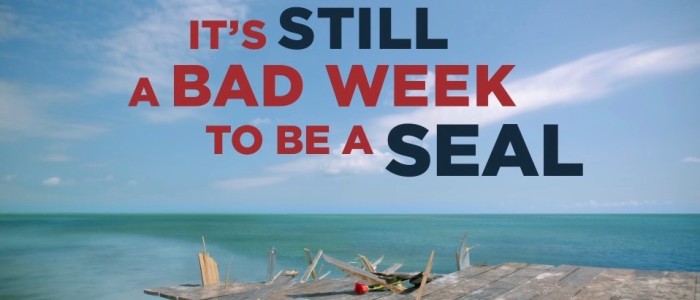 Great White Serial Killer was the only program about shark attacks the entire week. Another program, Shark Exile, discussed attacks, but the basis for the episode was all about new methods to prevent attacks so that Australia can end its barbaric and useless practice of shark culling. By choosing to focus more on new information, the 2017 edition was a buffet of fantastic documentaries. I can say with all sincerity that after 20 years of watching Shark Week, I managed to learn something new in every one of this year's episodes, proving that there is plenty of information and science to go around and absolutely no reason to substitute it with fiction. Still maintaining its love of puns (Sharks and the City, anyone?), still showing off cutting edge underwater cinematography, and still returning personalities like Paul De Gelder and Andy Casagrande to the fold, Shark Week has managed to resurface as a staple in gripping non-fiction programming.
Great White Serial Killer was the only program about shark attacks the entire week. Another program, Shark Exile, discussed attacks, but the basis for the episode was all about new methods to prevent attacks so that Australia can end its barbaric and useless practice of shark culling. By choosing to focus more on new information, the 2017 edition was a buffet of fantastic documentaries. I can say with all sincerity that after 20 years of watching Shark Week, I managed to learn something new in every one of this year's episodes, proving that there is plenty of information and science to go around and absolutely no reason to substitute it with fiction. Still maintaining its love of puns (Sharks and the City, anyone?), still showing off cutting edge underwater cinematography, and still returning personalities like Paul De Gelder and Andy Casagrande to the fold, Shark Week has managed to resurface as a staple in gripping non-fiction programming.
I already can't wait for Shark Week 2018! I look forward to continuing the study from Shark – Croc Showdown, I have my fingers crossed that Dr. Craig O' Connell gets that camera back on one of those NYC sharks, and I hope that the information and techniques provided in Shark Exile help end the needless killing of sharks. With Shark Week on the rise alongside populations of the animals themselves, the possibilities are endless.

